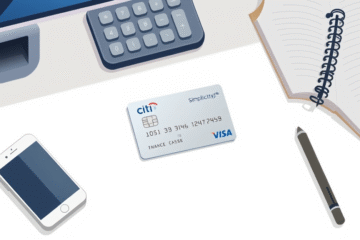Steps to Recover Credit After a Negative Rating
Credit Recovery is an essential process for anyone looking to improve their financial standing after experiencing a negative credit rating.
In this article, we will explore important steps that can help restore your creditworthiness.
By understanding how to check for errors in your credit reports, dispute inaccuracies, and manage your debts, you can take proactive measures to enhance your credit score.
Additionally, we will discuss strategies like goodwill deletions and maintaining low credit utilization, empowering you to regain control of your financial future.
Understanding the Impact of a Negative Credit Rating
A negative credit rating refers to a person’s or entity’s poor credit history, often characterized by late payments, high debt levels, or defaults according to Equifax credit score education.
This unfavorable rating can substantially impact one’s borrowing costs and financial opportunities, leading to higher interest rates on loans, lower credit limits, and even rejection of credit applications.
The relevant implications extend beyond borrowing; they can affect the capacity to rent housing or result in increased insurance premiums.
Essentially, a negative credit rating can create a financial burden, making everyday expenses more costly and financial growth more challenging.
Taking control of your credit health is crucial.
By understanding and managing the factors affecting your score, you can mitigate these consequences and enhance your financial future.
Regularly monitoring your credit report, addressing inaccuracies, and maintaining effective financial habits are tangible steps toward credit improvement.
Remember, your action today can pave the way for a better tomorrow.
Begin with small, manageable steps such as:
- Check credit reports
- Dispute errors
- Pay on time
- Lower debt
Monitoring and Correcting Your Credit File
Monitoring your credit file is crucial for maintaining a healthy financial profile.
Each credit bureau may report different information, so staying alert to discrepancies can help prevent future issues.
Early detection of errors allows you to take corrective actions swiftly, ultimately improving your credit score and securing better financial opportunities.
Checking Reports for Errors
Accessing your credit reports from Equifax, Experian, and TransUnion is crucial for identifying potential errors.
You can obtain these free annual reports by visiting AnnualCreditReport and requesting copies from each credit bureau.
Regular checks of these reports are vital, as inaccuracies such as incorrect account balances, misreporting of closed accounts, or inaccurate personal information can severely impact your credit score.
Reviewing your reports weekly can ensure that you catch these discrepancies early and take corrective action promptly.
Ensuring accuracy in your credit reports involves understanding the common mistakes that often occur, such as duplicated accounts or unauthorized hard inquiries.
Each credit bureau may report different information, so analyzing all three is essential.
To maintain vigilance, it’s recommended to stagger requests.
For example, you could access one report every four months.
This approach helps track ongoing accuracy and enhances your awareness of your credit health throughout the year while staying within the limits of free annual reports available to you.
Disputing Inaccurate Information
To challenge inaccuracies on your credit report, begin by reviewing your credit report and identifying errors.
This step is crucial because errors can negatively affect your credit score.
Next, (1) gather statements and necessary documentation such as bank statements and payment records to support your claim.
Ensure that you also have any correspondence with creditors that might be relevant.
Once you have all your evidence, (2) draft a dispute letter clearly outlining the inaccuracies and attach copies of your supporting documents.
Make sure to send this information to each credit bureau that lists the error.
Using strong, clear language in your letter can expedite resolution.
Under the Fair Credit Reporting Act, you possess significant rights to ensure that the information in your credit report is accurate.
Once the credit bureau receives your dispute, they are required to investigate and respond, typically within 30 days.
This legal protection guarantees that the bureau must remove or correct any inaccuracies if the error is confirmed.
For a smoother process, access services like Consumer Advice that provide guidelines on how to dispute errors effectively.
Consistently following these steps can improve your credit report’s accuracy and potentially raise your credit score.
Rebuilding Positive Payment History
Rebuilding a positive payment history is one of the most effective strategies for improving your credit score.
Consistent on-time payments demonstrate reliability and responsibility to creditors, which can lead to a quicker boost in your credit rating.
Establishing this habit not only protects your current score but also lays the foundation for healthier financial practices in the future.
Paying Bills on Time
Maintaining a good payment history significantly influences your credit recovery process.
Ensuring on-time payments requires practical strategies you can implement immediately.
Automation, for instance, guarantees no payment oversight, thus safeguarding your financial stability.
Explore tools like autopay that automatically deduct payments from your account by the due date, removing the anxiety of missed deadlines.
Additionally, setting reminders a week before the due date allows you to plan better and prioritize spending, as these timely notifications can prevent potential late fees.
Moreover, budgeting can simplify knowing what amount is required for each of your obligations, giving you a clear picture of your financial health.
Consider the organization of your financial priorities as an essential task.
- Automate minimum payments
- Set calendar alerts
- Align due dates with payday
Emphasizing your efforts on these proactive measures will significantly improve your overall credit profile and financial management.
Bringing Overdue Accounts Current
Communicating effectively with creditors is crucial in bringing overdue accounts current.
Initiate contact promptly to discuss the circumstances affecting your payments.
Engaging in negotiations with your creditors can lead to favorable payment plans, such as short-term forbearance or settlements.
For instance, a creditor might agree to temporarily reduce or suspend payments, allowing you to regain financial stability without the burden of accruing additional late fees or interest.
Alternatively, negotiating an installment agreement could enable you to pay the outstanding balance over a more manageable period.
As you orchestrate these repayment options, remain consistent and transparent in your communication, updating creditors about any changes in your financial situation.
Once agreements are in place, ensure these negotiations accurately reflect on your credit reports by checking with credit reporting agencies.
Following these steps, your efforts to rehabilitate delinquent credit accounts will contribute positively to rebuilding your credit profile.
Managing Debt and Credit Utilization
Managing your finances effectively involves understanding key concepts like debt reduction, which is the process of paying off your outstanding debts to lower your financial obligations over time.
An equally important aspect is the credit utilization ratio.
This ratio represents the amount of credit you’re using compared to your total credit limit.
Experts suggest that maintaining this ratio at a low percentage can significantly benefit your credit score.
The credit utilization table below illustrates how varying levels of utilization impact your credit:
| Utilization | Typical Impact |
|---|---|
| 0–9% | Excellent |
| 10–29% | Good |
| 30–49% | Fair |
| 50%+ | Risky |
Achieving a low credit utilization ratio necessitates financial discipline, or the commitment to manage your finances wisely by keeping spending in check and regularly monitoring your credit limits and balances.
Popular debt payoff strategies like the snowball and avalanche methods help in efficiently reducing debt.
The snowball approach focuses on tackling the smallest debts first, building momentum as you clear each one.
On the other hand, the avalanche strategy targets the debt with the highest interest rate first, potentially saving more on interest over time.
Both methods require commitment but offer different benefits based on individual financial situations.
See [NerdWallet’s guide on debt payoff](https://www.nerdwallet.com/article/finance/pay-off-debt) for more details on these approaches.
Negotiating with Creditors for Goodwill
Removing late payments from your credit report through goodwill deletion is possible by engaging in creditor negotiations.
This process involves respectfully requesting creditors to remove a negative mark, which can be particularly effective if you have a solid history of on-time payments, and the late payment was an anomaly.
Writing a goodwill letter entails explaining the circumstances that led to the late payment, such as unexpected hardships, and assuring the creditor that steps have been taken to prevent future occurrences.
It’s essential to maintain a courteous tone, acknowledging fault without shifting blame.
Utilizing letter templates can structure your request effectively.
For example, a simple note can convey your message clearly while maintaining professionalism.
Ensuring that you communicate your sincerity and commitment to financial responsibility is crucial in fostering goodwill from creditors.
Dear ABC Bank, I respectfully request a goodwill deletion for a recent late payment due to unforeseen circumstances, and I am committed to maintaining a timely payment pattern going forward.
Thank you for considering my request.
Applying for New Credit Strategically
Hard inquiries occur when you apply for new credit, such as a credit card or loan, and the lender checks your credit report.
Each hard inquiry can cause a small, temporary dip in your credit scores.
This impact is because they signal a potential increase in risk to lenders, as seen on Experian’s insights on credit checking.
Therefore, it’s crucial to approach new credit applications with caution, especially when working to enhance your credit score.
By spacing out applications, you can mitigate the cumulative negative effects of multiple inquiries.
New credit cautions should extend to the type of credit you choose to apply for.
Opting for a secured credit card could boost your score without further damaging it through high-risk applications.
As highlighted in FICO’s credit education, maintaining a low balance on such cards can positively influence your credit score.
Additionally, ensuring you’re ready for a credit inquiry, by keeping your financial data current, will help reduce any negative impact.
Making strategic decisions with new credit applications will pave the way for steady credit recovery.
In conclusion, implementing effective credit recovery strategies can significantly improve your credit score.
By staying vigilant and making informed financial decisions, you can successfully navigate the path to a healthier credit profile.



0 Comments